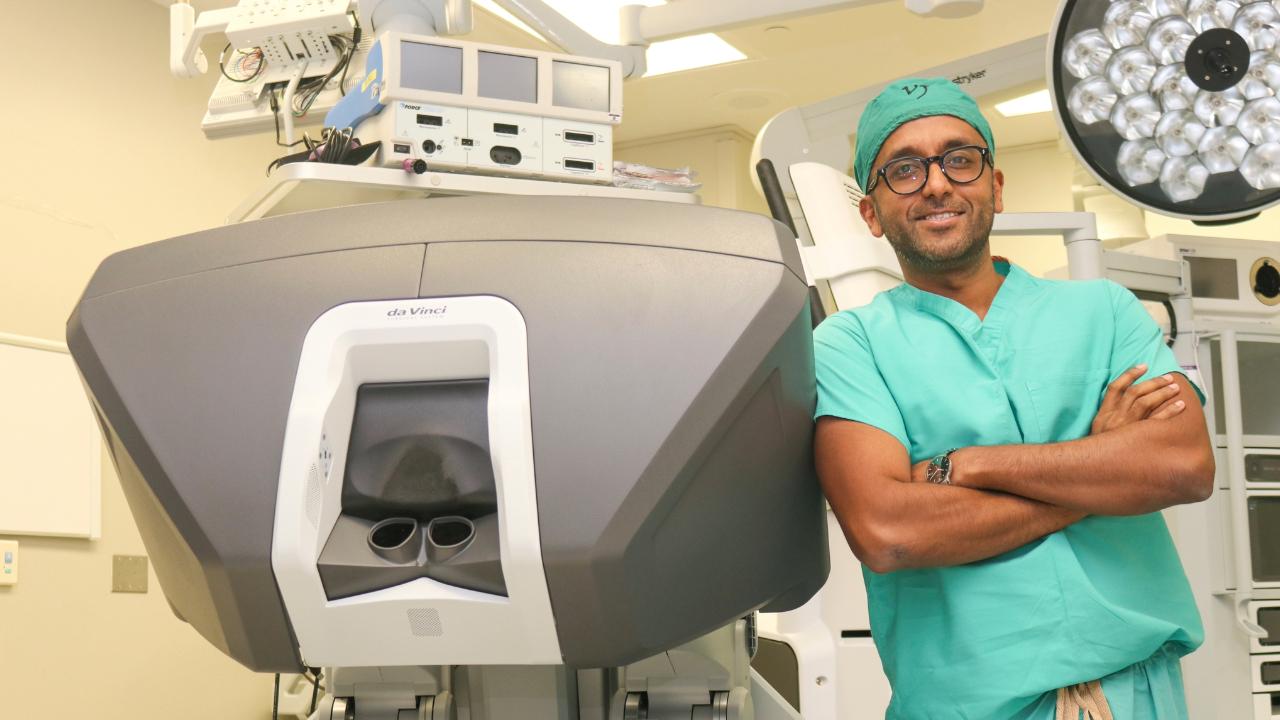Tulane surgeon provides new robotic option to help combat pancreatic cancer
Pancreatic cancer is the third leading cause of cancer death in the United States because the disease is difficult to detect and hard to treat. A team of Tulane Doctors offers advanced care for pancreatic cancer patients, with treatments that include a cutting-edge robotic Whipple procedure. This minimally invasive surgery reduces blood loss and shortens hospital stays and recovery time compared to open surgery for pancreatic cancer.
Adarsh Vijay, MD, Assistant Professor of Surgery, has introduced several advanced robotic surgeries since joining Tulane in 2020, including major robotic liver resections, robotic kidney transplants, robotic donor nephrectomies, robotic distal pancreatectomies, and the robotic Whipple procedure.
The Whipple procedure is an extensive and challenging surgical procedure in which the surgeon initially removes the head of the pancreas, part of the stomach, part of the small intestine, a portion of the bile duct, the gallbladder, and associated lymph nodes. The surgeon then reconnects the bile duct, stomach, and pancreatic stump to the small intestine.
“The robotic console, with its high-definition cameras and increased sensitivity to the slightest movements of the surgeon’s wrist, hand, and fingers, aids to improve the surgical precision,” said Vijay. “A robotic Whipple procedure requires only four eight-millimeter incisions for the surgical arms and camera. Once the surgery is completed, the pancreatic tumor can then be removed through a small 5cm incision across the bikini line.”
Patients who undergo robotic Whipple surgery spend less time recovering from the procedure and experience less pain and minimal scarring. They can also begin adjuvant chemo/immunotherapy sooner, aiding recurrence-free survival.
Pancreatic cancer is highly aggressive, and patients often need a team of doctors working together to address medical and surgical concerns. At Tulane, specialists in surgery and oncology routinely work together to give patients the best outcomes.
“Tulane Doctors offer the latest robotic approach to this complex surgery,” said Vijay. “It’s a new ray of hope for patients who previously had to travel out of state to find a surgeon or hospital with this expertise.”
The Department of Surgery at Tulane University School of Medicine recently welcomed Kristen Limbach, MD, and Kiara Tulla, MD, to the team. Dr. Limbach has extensive training in cancers of the liver, pancreas, and gastrointestinal tract, with a particular focus on metastatic neuroendocrine tumors. Dr. Tulla’s clinical and research interests include the role of robotics in abdominal transplantation, living donation and its broader utilization, and improving access to transplantation among marginalized populations.

